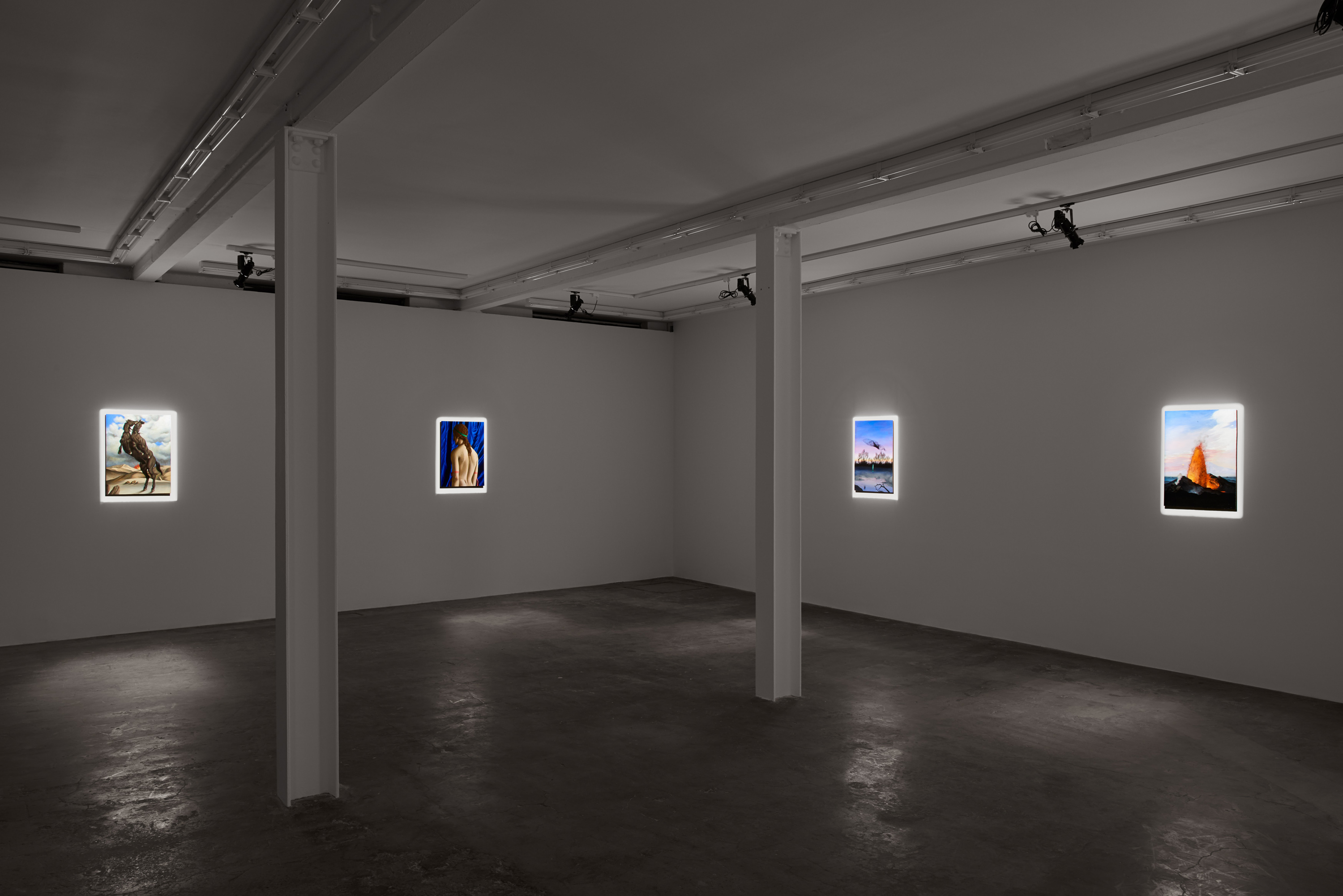Holst presents an interpretation of English composer Gustav Holst’s The Planets, Op. 32, a seven-movement orchestral suite written between 1914 and 1916. Each movement of the suite is named after a planet of the solar system and its corresponding astrological character as defined by Holst. Driscoll transforms these sonic planetary portraits into enigmatic figures, fantastical creatures or imagined landscapes, each enabling the artist to traverse themes of revelry, voyeurism, fury, desire, love and loss. Holst’s turbulent compositional arrangements offer a generous space within which to explore and express the visual manifestations of such divergent psychic moods and feelings.
In Holst’s planetary arrangement, only seven of the eight then-known celestial bodies were envisioned into music and Driscoll’s works appear in parallel sequencing. Mars is followed by Venus, Mercury, Jupiter, Saturn, Uranus and Neptune, with the Earth left absent. It is understood that Holst resisted describing Earth as all musical creativity derives from this planet and attempting to reduce its essence to a single arrangement would initiate an impossible task.
Reverberating with references to the romance and theatricality of Pre-Raphaelite and Mannerist painting, Driscoll’s work fuses traditional subject matter, techniques and pictorial devices with a radical approach to form. Exuding latent sensuality, androgynous figures in fantastical surroundings offer a re-imagining of the classical nude or landscape. In contrast to the artist’s figurative studies, in these works, landscape is essential, rather than serving as a pictorial device to set the scene. For the artist, sound is all-encompassing and cannot be quantified into a figure or an object so in the exhibition, music inhabits every corner of each painting.
Driscoll mimics the allegorical gesture Holst makes in The Planets visually rather than musically. Much in the same way as Holst renders something silent into music, Driscoll envisions the invisible. Importantly, these paintings do not constitute representations of the mythology of the planets, but visualisations of the sounds of the music. A process of unlearning pre-empted the works, to establish a distance from all the associations with the specific characteristics of the planets as rooted in the classics.
Similar to the continuous sound offered by music, Driscoll visualises paintings as moving scenes, with each work proposing a suspended still of that shifting image. In response to sounds that range from oppressive to invigorating, Driscoll envisions vehemently unconnected fantasy worlds that home double-headed beasts, towering emerald figures and aggressive terrain. The distinct disparity between each composition allows the connection between the paintings to remain located in the humble reverie of Holst’s music.

